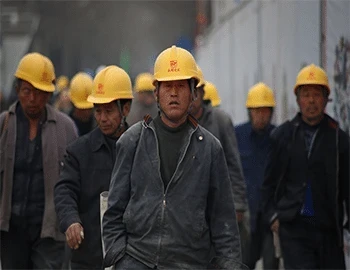Seven Reasons not to Accept Employment Counteroffers

Seven Reasons not to Accept Employment Counteroffers
Seven Reasons not to Accept Counteroffers When Considering Employment in the Construction, Engineering or Environmental Profession.
You have been ready to move on from your current job in the construction, engineering or environmental field for a while because you feel underpaid, stuck in a rut, and/ or unappreciated. Showing up at a job site is something that you have been doing because of obligations and even those barely get you out of bed and into work. Recently, you have spent the time needed job hunting, going to interviews and have handed in your resignation only to have your boss present you with a counteroffer, so that you will not leave. No matter how flattering the counter offer when you put in your resignation. You should not accept it for the following reasons.
- Accepting a counteroffer is a short-term solution to the problem. There is an underlying reason why you wanted to leave your job in the environmental, engineering or construction industries. It could be a lack of advancement opportunities, the general feeling that the career path you are on will not bring you the results you want, miserable working conditions, bad management and/or burnout. Even if the counteroffer includes remedies for the issues you are experiencing it may only be a matter of time before your negative feelings return.
- You should of been making what you are worth without the company being scared to lose you. The fact is they did not value you as an employee if they were not willing to pay you want you are worth. The company offering you a raise as part of their counter offer indicates that they are only thinking short-term about the risks and costs involved with hiring your replacement. Once they figure out how to replace you without it being problematic, you will be gone.
- Counteroffers are always more beneficial to the employer. Often, if the boss considers the timing of your resignation to be inconvenient for them, they will want to wait until it is better for them to fire you. So, if the company is heading into the holiday, busy season or you are working on a big project, they will want to offer you a promotion, more money and/or other perks because they do not want to spend the time and money on interviewing and hiring your replacement at that time. Once the holidays, busy period or project passes the company will no longer have a reason to keep you on.
- They are just buying time to find your replacement, who you will most likely train. Instead of waiting for you to put another resignation in, the company will often have you train your replacement. The company would have no reason to keep you in their employ once your replacement is trained.
- The boss may only be keeping you on to keep company morale up and/or to look good to upper management. They may also want to look good for the person or company that they are doing the engineering, construction, or environmental job for, and having one of their employees quit during the project does not look good for the company. As soon as this is no longer an issue they will have no problem firing you.
- Management will no longer trust you as you have demonstrated a lack of loyalty to the company.. Management will pass you up for promotions and you will be the first to be laid off because they know that you are not committed to the job. They will pass you up for long-term assignments and projects because they will be unsure that you will be around to complete them.
- Ninety percent of people who take the counteroffer will not have a job in a year and a half. Most employees leave a job or are fired within six months of accepting a counteroffer.
Michael DeSafey is a leading executive recruiter for professionals in the construction, engineering and environmental industries. He is currently the President of Webuild Staffing www.webuildstaffing.com . To learn more about Michael or to follow his blog please visit www.michaeldesafey.com
Understanding the Long-Term Benefits of Proper OSHA Training In The Construction, Engineering and Environmental Industries.

Understanding the Long-Term Benefits of Proper OSHA Training In The Construction, Engineering and Environmental Industries.
What is OSHA?
OSHA (Occupational Safety and Health Administration) was created in the 1970’s in response to the Occupational Safety and Health Act to ensure safe and healthy working conditions for men and women by setting and enforcing standards, as well as providing proper training and education. Every job has its own set of OSHA regulations that employers must meet to ensure the health and safety of their employees. On top of that, each job has its own specialized OSHA training which all employers are required to have their employees partake in and regularly refresh on. OSHA representatives provide regular audits at companies to ensure employers are keeping work environments safe for their employees and that employees are continuing to use safe practices when performing their duties.
How do I meet OSHA requirements as an employee?
All employers are required to ensure all their employees are trained in OSHA certified safety measures. At Webuild Training they offer a wide variety of specialized OSHA safety courses designed for those seeking employment in the fields of construction, engineering, power, utility, real estate, and industrial markets. By providing the most up to date and effective courses, you can meet all compliance guidelines for your career. Each industry has its own set of training guidelines and with the work at your own pace web-based learning modules, you don’t have to worry about any scheduling conflicts arising as you would with a classroom-based instruction. Instead, sign up for our fully contracted and compliant training courses. They offer over 1,000 courses for new employees, as well as required refresher courses for preexisting employees needing to meet their annual compliance requirements.
What is the benefit?
Proper OSHA training is the keystone to an accident free work environment. For the employer, they benefit by meeting the national requirements and by having fewer work related accidents. Fewer work related accidents means higher productivity and less lost time for people having to take time off from work to recover or investigations related to the mechanism of injury. Having well trained, safe employees will always pay off in the grand scheme. Ensuring all employees are properly trained and all equipment is OSHA certified and in working order greatly benefits the productivity of employers. Regular equipment inspections and OSHA re-certification instills a feeling of security in all parties involved.
For employees, avoiding accidents is the best way to avoid unintentional time away from work. Remembering safety training in all aspects of work enables employees to work in and maintain a safe environment. Following OSHA guidelines greatly reduces the chance of on the job accidents. Being a safe, productive employee should be on the top of everyone’s list.
Do not ignore damaged equipment. If you see something, say something, and if it has been awhile since your last OSHA re-certification, speak up. These statements ring especially true in the career pathways of construction, engineering, and environmental services. Serious injury and even death can occur if you do not adhere to OSHA guidelines at any of these jobs. A construction worker’s failure to regularly inspect his machinery and tools can cost him his life. An engineer who does not properly lock out a machine before climbing in to inspect it can be accidentally maimed or crushed. Taking the time to perform all tasks safely is worth your time, every time. Following through will lead to a satisfying career in a safe, healthy environment for all.
Michael DeSafey is a leading executive recruiter for professionals in the construction, engineering and environmental industries. He is currently the President of Webuild Staffing www.webuildstaffing.com . To learn more about Michael or to follow his blog please visit www.michaeldesafey.com
Speak Up: How to Get the Promotion You Deserve

Speak Up: How to Get the Promotion You Deserve
Speak Up: How to Get the Promotion You Deserve
As a professional in the construction, engineering, or environmental industry, you’ve worked hard. You’ve shown your dedication to the company. You know you deserve a promotion but asking for one can be a scary and intimidating experience. If you are considering approaching your boss about getting a promotion, there are several things you can do to increase your chances of getting it.
Wait for the Right Time
While your amount of time with the company should not be the only determining factor, it is important to realize it may play a part in whether your employer feels that you deserve a promotion. According to a recent Inc. article,
only 6.4 percent of employees get a promotion during their first year at a job. This number increases to 22 percent for those in their third year with a company. While this does not mean that you cannot ask for a promotion in your first or second year with a company, it is important for you to do a self-evaluation. Have you contributed enough to the company to deserve a promotion?
At times, it may be worth waiting another year or even just a few more months before attempting to get a promotion. It is also important to note that summer is viewed as the best time to ask for a promotion, which is great for many people who build houses or otherwise work outdoors. Summer is often their busiest season.
Approach the Issue Directly
It might be a bit intimidating to think of approaching your boss and asking for a promotion, but that is the best way to determine if your boss is willing to consider giving you a promotion. Depending on your relationship with your boss, this can be done in a formal setting, where you request a meeting, or it can be done in a casual setting where you mention that you feel that you deserve a promotion.
Follow Up
After you have mentioned the promotion, it is important to follow up. Send your boss an email. Mention it again a week or so later. Bring it into conversations when you can. Even if there is not currently a position available, make your desires clear. While you should not be annoying, it is important to be persistent. You may not get the promotion right away, but if you don’t give up, you are more likely to eventually be considered for a promotion.
Have the Why Ready
When asking for a promotion, it is important to have facts, statistics, or other information to justify asking for one. To prepare to ask for a promotion, do things that show that you deserve it. This may include taking on larger projects, taking on more responsibility, or otherwise contributing to the company on a higher scale. Just be careful not to overstep your responsibilities or appear too eager for the promotion. Becoming a brown-noser or trying to take over your supervisor’s responsibilities are two of the biggest mistakes people make when they are trying to get a promotion. Instead, do your job to the best of your ability, and be willing to show why you are the best choice for the promotion.
You may even want to ask for the opportunity to prove yourself. Volunteer to temporarily take on some of the responsibilities of the position you want. Then, you can show that you are the right person for the job.
The biggest key to asking for a promotion is to make sure that you have planned ahead. Practice what you are going to say beforehand, and then you can approach the issue with confidence.
Michael DeSafey is a leading executive recruiter for professionals in the construction, engineering and environmental industries. He is currently the President of Webuild Staffing www.webuildstaffing.com . To learn more about Michael or to follow his blog please visit www.michaeldesafey.com
8 Mistakes You’re Making in Your Job Hunt – Fix them!!

8 Mistakes You’re Making in Your Job Hunt – Fix them!!
8 Mistakes You’re Making in Your Job Hunt For a Construction, Engineering or Environmental Jobs – Fix them!!
Looking for a job is one of the most stressful activities in a person’s life. It is especially difficult if what you’re searching for requires certain levels of experience or you don’t meet all qualifications.
If you’ve sent in hundreds of applications, been in dozens of interviews, and still haven’t had success (or worse, gotten no interviews), it might not be that the job market is “tight right now.” You want a good job, and blaming your situation will do nothing to get you that job.
If that’s you, then it’s time to take a look at what you’re doing wrong. Here are 8 reasons that you’re not getting hired in the construction, engineering or environmental industries.
You are not networking
There’s a saying that your network is your net worth. This is as true today as it has always been. Although the advent of the internet has made finding new opportunities much simpler, you still cannot avoid human interaction.
Go to networking events and talk to people who work at the company you want to work for. Building a relationship with people that have access to what you want can never do you wrong. Networking events have incredible value associated with them because of the connections that can be made. Don’t stop at only talking to people who work at your dream company, either. Talk to everybody that goes there. Becoming a master at interacting with others never hurts, and you might find even better opportunities than you initially had in mind.
You don’t know how to sell yourself
A lot of people apply a negative connotation to selling. They view selling as greedy and untrustworthy. This is false because everyone is selling something all the time. Whether you’re in an interview, going on a date, or trying to negotiate a raise, you’re selling the other person on why you should get what you want.
You need to be clear and confident in what you convey, both in your resume and in the interview. Employers want to know that you truly have the skills and knowledge it takes to enhance their business and current projects.
Your resume doesn’t portray measurable accomplishments
This may be something that you’ve already heard before. When employers are deciding on who to hire on to their team, they’re impressed by proof of their ability. That proof comes in the form of specific, measurable results they have obtained.
It’s not enough to say that you “helped a organization get more sales or finish a project.” You need to use analytics and numbers when talking about what you’ve accomplished. Saying that you “increased sales by 38% each quarter” is not only more believable, but you stand out to the hiring manager as a person that’s likely to bring them success.
You plain lack interest in the job
I get it. You would rather work somewhere else doing something different, so you’re not excited about going for anything less than that. This is dangerous because employers can sense a lack of interest.
It’s hard to fake enthusiasm about something you couldn’t care less about. If you feel like you won’t enjoy your role or the company, don’t apply there. It’ll save both them and you the time of interviewing and showing disinterest.
You haven’t done your homework
One of the most common questions in interviews is why you want to work for the company. Especially if you’re going into a sales-related role, they want to see you doing the work before you’ve even started.
Research the company as if it was a potential client you would have to make a sale to. Then, when it comes time for you to answer this question, you can confidently answer with what you’ve learned about the company and why it impresses you. You can also confidently answer how you will bring value to the company.
You don’t have the qualifications
This one is difficult to get around. Sometimes, it’s difficult to have the necessary qualifications that employers are asking for. Just remember that their desire is to see that you know how to do the job in question, do it well, or be able to learn it quickly.
There are ways to maneuver around this. Let’s say you’re applying for a sales job. They want you to have 3 years of experience, but you only have 1 year of experience. You can explain to them the measurable results that you’ve achieved working on company’s projects. If you’ve worked for yourself, you can show them the results you’ve achieved there and it sets you apart as a go-getter.
You don’t come off as confident
Interviews are a challenge for anybody that doesn’t have the best personal speaking skills. You are probably as conversational as can be when around people you’ve known for a while. You might even be confident at an event surrounded by people you haven’t met.
In the interview room, that doesn’t matter. It all comes back to them wanting to hire someone that will get them results. If you go in there with your palms sweaty, knees weak, and arms heavy then you know what you need to work on next time to land the job.
The key here is practice. The best practice possible is in the situation you’re practicing for, so having multiple interviews would get you comfortable doing interviews. If you’re not able to do that, you can just practice in front of a mirror or with a friend. Don’t write down answers and try to memorize them, though. That’ll get you dependent on those specific questions. If they ask different questions then you’ll be nervous because you didn’t prepare for them. Just practice and get used to the feeling of interviewing.
You come off as entitled
There’s a line between confident and arrogant. You need to show the employer that you’re able to do the job, but don’t act as if you are entitled to have that job.
These are some things to think about if you’re not having luck getting the job you want. Now that you have an idea of the mistakes you may be making, take it upon yourself to learn from those mistakes. It’s on you to change your situation.
Michael DeSafey is a leading executive recruiter for professionals in the construction, engineering and environmental industries. He is currently the President of Webuild Staffing www.webuildstaffing.com . To learn more about Michael or to follow his blog please visit www.michaeldesafey.com
How LinkedIn Can Contribute to your Career Success

How LinkedIn Can Contribute to your Career Success
How LinkedIn Can Contribute to your Career Success in the Construction, Engineering and Environmental Industries
LinkedIn is one of the oldest social media sites still in operation today. Founded in December of 2002 the platform has grown considerably over the years – unlike the numerous ones which have ultimately disappeared in that amount of time.
According to Top Dog Social Media, over 84 million people use LinkedIn in the United States alone. To put this in proper perspective, this is around 27% of the entire population. But LinkedIn is not your average social media platform.
Instead of catering towards typical social interactions, LinkedIn was developed to help
business professionals network and build profiles which are essentially online, living resumes.
Being on LinkedIn is an important step for individuals hoping to continue growing and nurturing their career paths in the construction, engineering, and environmental industries. Here we discuss why.
Building Your Network
With so many professionals on LinkedIn, the site is the perfect medium for building your network of industry professionals. Other users even have the ability to endorse the skills you’ve listed on your profile, which is essentially verification you can actually perform the way you state.
A good network can open up a world of opportunities for those serious about their careers. It can assist in getting new jobs or promotions and allow you to keep up to date on the latest industry trends, such as:
- What does the future cost projections on materials look like?
- What are the newest technologies or trends to hit these industries?
- What environmental issues are currently occurring throughout the world?
Living Resume
The term “living resume” means the information on your LinkedIn profile can be constantly updated or added to so everything is as current as possible.
It is for this reason that so many hiring managers have taken to using these profiles in their process. A person who submitted their resume for consideration three months ago may have new skills or education relevant to that position.
To properly leverage this, however, you must keep the profile as current as possible. When you receive a new certification, get a degree, or complete a related project you should list it on your LinkedIn profile within 48 hours of completion.
Allowing your profile to grow stale will hamper your career growth. This is especially true in all careers in the construction, engineering, and environmental industries where staying current is vital to both safety and efficiency.
Promote Yourself
LinkedIn is the perfect catalyst for professional promotion efforts. You can share your profile to other social sites, including blogs or websites. Your profile will also show up in search engine results, which can then be seen by employers searching for professionals in your industry.
All your professional information is at the fingertips of everyone – which is a solid asset in building a solid career. Your achievements, certifications, education, previous projects, cover letter, and links proving what you’ve stated are all featured on your page. Providing this information publicly allows you to appear transparent, trustworthy, and confident.
Get Hired
LinkedIn is one of the best ways for industry professionals to get hired. Your profile gives the option of stating you are open to offers, actively seeking a new job, or not open to any offers currently. Employers or hiring managers can search for professionals seeking employment by industry and desired skills.
While anyone can submit their resumes to specific jobs, using LinkedIn as a method of getting hired is a step above the rest. This is thanks to the fact that limited work is necessary on your own behalf. Simply keep your profile updated and continue advancing your qualifications to have job offers start coming to you.
Michael DeSafey is a leading executive recruiter for professionals in the construction, engineering and environmental industries. He is currently the President of Webuild Staffing www.webuildstaffing.com . To learn more about Michael or to follow his blog please visit www.michaeldesafey.com
